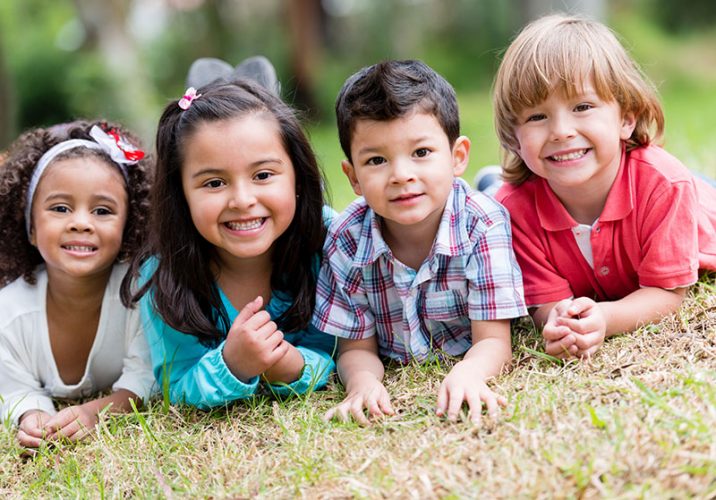
As we continue to adjust to our “new normal” many parents are concerned about their children who are struggling to get back on track after being isolated during COVID.
Even though kids have had some time back in school, many are still playing catch up with their social skills. Parents and teachers are seeing more frequent tantrums, anxiety, and conflicts with other kids.
The good news is kids are remarkably resilient. Yes, it will take some time to readjust to post-pandemic life, but children bounce back. And there are things you can do to help make this transition a little easier. Here’s what you need to know.
First of all, the problem isn’t in your head. Experts do agree that many kids’ social and emotional development was impacted by staying home during COVID. This lack of social contact made it harder for kids to practice key social skills, like coping with frustration, and sharing.
It’s also important to remember that, for some kids, the “return to normal” is itself a source of stress. Kids may feel socially awkward, worry about not making friends, or even miss being home with their families. And if kids have been bullied, school may be a cause of anxiety.
One of the most important things you can do to help your kids during this time is to have realistic expectations. Getting back to normal is going to take time, and there may be some struggles along the way. It’s OK to not be OK.
There are several ways you can support your kids and practice social skills to ease the transition during this time. If kids are nervous about social situations, try brainstorming conversation starters together. Sit down and come up with topics they can talk about with friends, or questions they can ask to break the ice.
Don’t underestimate how much your child is picking up at home. You can teach and reinforce social skills at family meals or game night, where you can practice habits like sharing, taking turns, and not interrupting. Don’t forget to let kids know when they get it right by recognizing and praising positive interactions like asking about a sibling’s feelings.
Remember that when kids are struggling it might not be obvious right away and each child might react differently. You may notice that your child has a shorter fuse and gets frustrated quicker than usual. Some children may be more quiet than normal. And others still might have more physical responses like head aches and tummy aches.
That’s why communication is key. Get in the habit of talking with your kids and asking them open-ended questions about their day. If you notice your child getting upset about something that would normally roll off them, help them calm down, and then have a quiet conversation about whether their big feelings are actually about something else.
Remember also that during times of transition, it’s more helpful than ever for kids to have the comfort of a predictable routine at home. Try to have a regular schedule for meals, naps, and bedtime, and to set aside some time every day to play or visit with your child. Kids cope better when they are healthy and rested. You can also teach your child simple mindfulness exercises, like controlled breathing, to deal with stress. You can find helpful resources on the CDC’s website for COVID-19 Parental Resource Kit and often at your child’s school. There are also lots of free online resources and apps for meditation or calming exercises.
For most kids, getting back on track just takes time. But sometimes you may need to get outside help. Talk with your child’s health care provider if your child seems to be struggling with adjustment despite these steps. Especially reach out if you see signs of deeper anxiety, depression, or behavior problems that seem severe or don’t go away as some children might benefit from additional mental healthcare resources. And don’t be afraid to reach out if you have questions in general, it’s what we’re here for!
Finally, as you help your child readjust to friends, school, and family gatherings, don’t forget to also take care of yourself. When you’re upset or worried, it can make your kids more upset and worried too. If you take steps to manage your stress, you can be more present to support your kids.
The bottom line is that it can take some time to get those social skills back, but kids are remarkably resilient. With patience and support, you can help your kids get back into the groove.
Travis Glenn, MD was born and raised in Ohio, attended Georgia Institute of Technology, and worked in research at the CDC prior to medical school at Ross University School of Medicine. He believes that good, quality primary care is the way to a healthier nation and that starts with you. He and Dr. Bradley Glenn recently located to Maui to open Glenn Family Medicine at Maui Memorial Medical Center Outpatient Clinic in Wailuku. For more information, visit glennfm.com.



